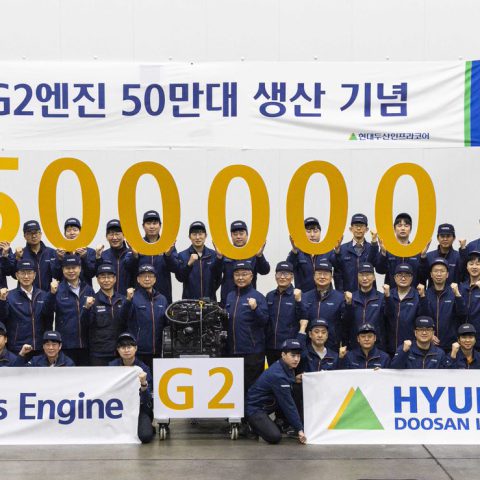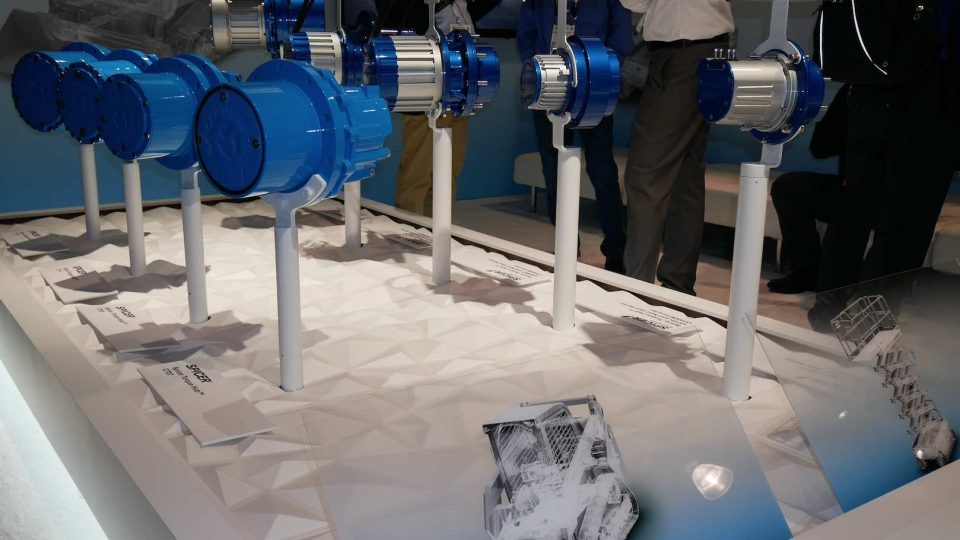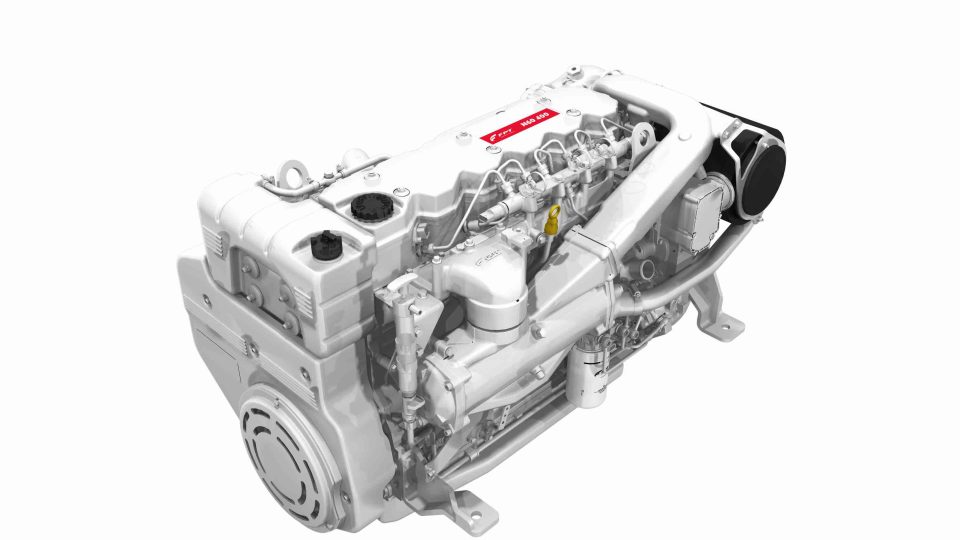Hyundai Doosan Infracore produces its 500,000th G2 engine
Hyundai Doosan Infracore celebrated the production of its 500,000th environmentally friendly small-sized G2 engine.

Hyundai Doosan Infracore held a ceremonial event on Tuesday, Nov 22 at the Incheon G2 factory to celebrate the production and shipping of its 500,000th 1.8 to 3.4L grade small-sized G2 engine, a record achieved in 10 years since its first production in October 2012 when the G2 engine plant was first built.
The ceremony was attended by more than seventy employees including Hyundai Doosan Infracore CEO and President Cho Young-cheul, CEO and Vice President Oh Seung-hyun, Engine Business Head Kim Joong-soo, and Labor Union Head Yoo Joon-mo, and shared business results of the G2 engine, their future vision, and rewarded employees of merit.
“The G2 engine is a high-efficiency, environmentally friendly engine produced with our very own technology and will be a key player that competes with global engine makers in markets such as the United States and Europe,” said CEO Cho Young-cheul at the ceremony while emphasizing, “We need to proactively target these markets with advanced technologies, high quality engines and a diversified portfolio.”
CEO Cho also shared the future vision for G2 engines and added, “We need to create a systematic production system in order to reach total production of 1 million engines in the next five years, which will require twice the current speed,” and continued, “Please also work on creating synergy between our three construction equipment companies as these engines will be applied to Hyundai Genuine’s forklifts and other vehicles along with Hyundai Doosan Infracore and Hyundai Construction Equipment’s excavators developed on a new integrated platform.”
Hyundai Doosan Infracore’s G2 engine is an eco-friendly and highly efficient model that satisfies EU Stage V, the highest emission regulation in Europe and is used in various construction equipment along with forklifts and agricultural machineries.
The G2 engine was first produced in 2012 for industrial purposes and reached its 100,000thproduction in 2016. Since producing 250,000 engines in 2019, Hyundai Doosan Infracore celebrated its 500,000th engine just three and a half years later, which was possible due to its global level performance and quality, compliance to emission standards, and its swift and stable supply system.
While Hyundai Doosan Infracore will continue to supply its current productions at a similar pace, it plans increase yearly capacity which is currently at 70,000 engines to 100,000 engines going forward by creating and expanding new productions externally. This will hopefully contribute to the market share of small engines now at 12% to 17%.
Meanwhile, the ceremony ended with Captain Heo Myung-hwa of the G2 Assembly and Production team representing all participants and reading the G2 production plant resolution on securing safety, quality and production capacity and then presenting it to Engine Business Head Kim Joong-soo.










